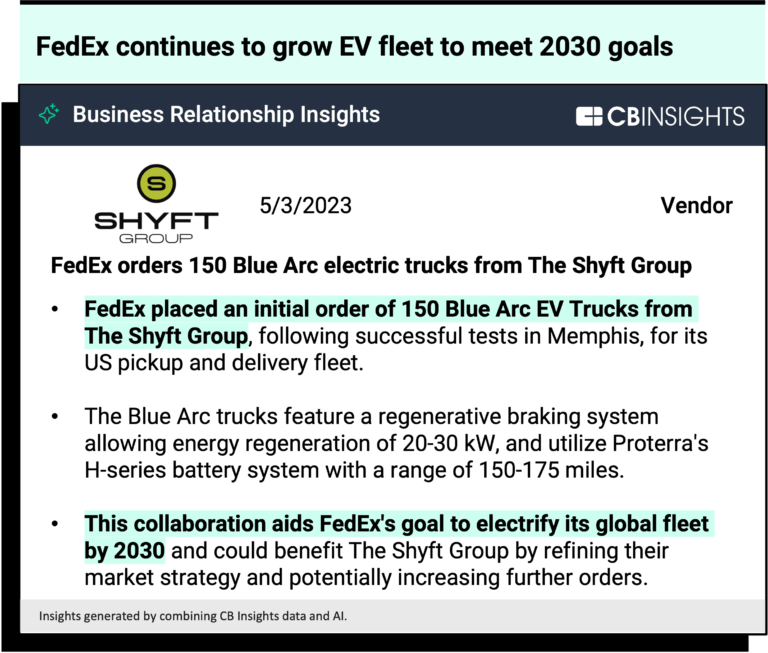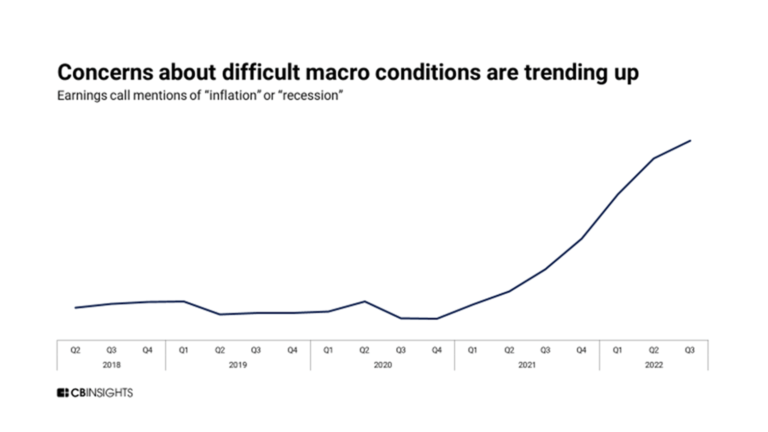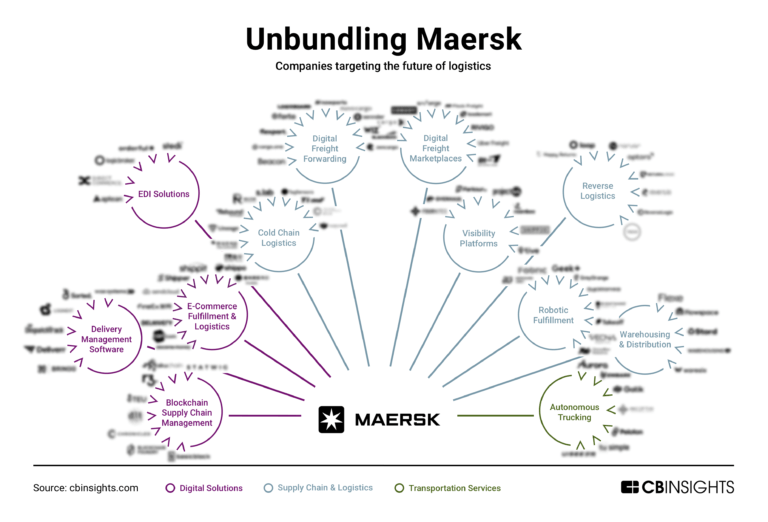
Shippo
Founded Year
2013Stage
Series E | AliveTotal Raised
$154.03MValuation
$0000Last Raised
$50M | 4 yrs agoMosaic Score The Mosaic Score is an algorithm that measures the overall financial health and market potential of private companies.
-89 points in the past 30 days
About Shippo
Shippo is a provider of multi-carrier shipping software for businesses in the e-commerce sector. The company offers a platform that enables businesses to connect with multiple shipping carriers, obtain shipping rates, print labels, automate international shipping documents, track shipments, and manage returns. Shippo serves e-commerce businesses and marketplaces. It was founded in 2013 and is based in San Francisco, California.
Loading...
ESPs containing Shippo
The ESP matrix leverages data and analyst insight to identify and rank leading companies in a given technology landscape.
The multi-carrier shipping software market provides solutions for retailers to optimize their shipping process and offer seamless shipping experiences to customers. Technology vendors in this market offer multi-carrier APIs and platforms that allow retailers to access a wide range of carriers in a single integration and UI. Common feature include comparing shipping rates, generating labels, and tr…
Shippo named as Outperformer among 15 other companies, including Pitney Bowes, QAD, and FourKites.
Loading...
Research containing Shippo
Get data-driven expert analysis from the CB Insights Intelligence Unit.
CB Insights Intelligence Analysts have mentioned Shippo in 3 CB Insights research briefs, most recently on Aug 8, 2024.
Expert Collections containing Shippo
Expert Collections are analyst-curated lists that highlight the companies you need to know in the most important technology spaces.
Shippo is included in 6 Expert Collections, including Supply Chain & Logistics Tech.
Supply Chain & Logistics Tech
5,745 items
Companies offering technology-driven solutions that serve the supply chain & logistics space (e.g. shipping, inventory mgmt, last mile, trucking).
Unicorns- Billion Dollar Startups
1,270 items
Conference Exhibitors
5,302 items
Retail Tech 100
100 items
The most promising B2B tech startups transforming the retail industry.
E-Commerce
217 items
Tech IPO Pipeline
257 items
The tech companies we think could hit the public markets next, according to CB Insights data.
Latest Shippo News
Jan 13, 2025
Search by Law Firm Some companies choose to lean on nonsolicits, NDAs Companies are tailoring their noncompetes and seeking alternatives in response to state-level restrictions, even as the fate of a federal ban remains uncertain. The Federal Trade Commission is appealing a near-total block on the ban at the Fifth Circuit but it’s not clear whether the incoming Trump administration will continue the litigation. Some companies don’t use noncompetes, either on principle or under state prohibitions. They say other measures to protect their trade secrets and customer bases, such as nonsolicit and nondisclosure agreements, are enough. Those using noncompetes must pay close attention to how they write the agreements, advisers say. California, Minnesota, North Dakota, and Oklahoma ban noncompetes, while other states restrict who can be asked to sign them. “Companies just need to stay on top of what’s happening,” said Russell Beck, a litigator and founding partner at Beck Reed Riden LLP whose practice focuses on trade secrets and restrictive covenants. “They don’t need to assume that everything is coming crashing down on their use of noncompetes, but they should be doing what they really should have been doing all along,” he added. “And now there’s a little more of an imperative to do that.” Alternative Covenants Jason Provonsha, CEO of logistics provider Steam, said his company has never used noncompetes, relying instead on nonsolicits and NDAs. “If you can say that when someone leaves they can’t take your customers away or they can’t hire your people away, that’s really all you care about, ultimately,” he added. “That’s why I always felt the noncompete was such an example of corporate overreach.” Rather than restricting where former employees go next, companies can incentivize them to not go to a competitor. For example, under the arrangement known as garden leave, employees are paid to sit out of the work force for a period. Companies can also use a forfeiture for competition, Beck said, where the employee gives up benefits if they take a job at a competitor. Nondisclosure agreements can be written to protect sensitive information, and nonsolicitation agreements can stop departing workers from taking clients or other employees out the door with them. Veeva, a cloud software company for the life sciences industry, uses NDAs and trade secrets law. “We will sometimes remind employees of their confidentiality obligations,” and would pursue litigation if the company saw a trade secret violation, said Josh Faddis, senior vice president and general counsel at the company. “But those are the two. You don’t need the overkill of noncompetes to protect confidential information or trade secrets information.” Shipping software company Shippo doesn’t use noncompetes. Employees are asked to sign a “pretty robust” confidentiality agreement, said Deborah Adler, the startup’s general counsel. “We work hard to maintain a culture where people understand and respect confidentiality,” and the company hasn’t had real trouble with departing employees, Adler said. A noncompete is most valuable when a key figure like the founder sells the business, said Andrew Reed, a labor and employment partner at Troutman Pepper Locke. Even skeptical courts and strict state laws are apt to take those agreements more seriously than one binding an employee, he said. “The deeper ingrained the individual is into the industry, the more we see the noncompete as being necessary,” Reed said. Nuanced Approaches The FTC’s planned noncompetes ban didn’t generally stop companies from using the agreements. “We were taking a wait-and-see approach,” said George Washington, chief litigation counsel at Orange Business. The company took inventory of its noncompetes, but didn’t stop using them in anticipation of the ban, Washington said. The FTC rules would have required employers to notify all employees who had a noncompete. Companies had prepared those notices, but when a federal judge in Texas stopped the rule in August, it wasn’t difficult for employers to continue with business as usual, advisers said. Meanwhile, states are regulating issues like salary thresholds, pushing companies to be more deliberate in who they ask to sign one. “To the extent they were using them way too broadly for people they shouldn’t have been using them for in the first place, they’ve probably looked a little more closely at those,” Beck said. In Washington, DC, for example, that cut-off is a little over $150,000. A properly tailored noncompete shouldn’t limit where an employee goes next, but what they do there, Washington said: “They can call upon other customers” in their new place of work, “but they can’t compete against us for the same customers.” Washington said his legal department now reviews developments in noncompete regulations yearly. “There was a period where we didn’t need to do this on an annual basis, but as more states cropped up and the FTC ban approached, this became more necessary on a regular basis,” he said. Courts have also generally become more critical, Beck said: “You can’t just walk into court and say, ‘I have this noncompete and I want it enforced’”—so companies are looking at other options. Agreements should balance competing concerns, said Jonathan Crook, a partner at Fisher Phillips and the founder of Blue Pencil Box, a platform that tracks restrictive covenant regulations. They must maximize protection for the business, minimize legal risk—especially in states with penalties for overreaching noncompetes—and ease the administrative burden of customizing agreements for each employee. The danger isn’t just that a noncompete won’t be enforceable. States including Washington, Illinois, and Colorado levy fines for violating noncompete regulations. Crook tells clients to use bespoke agreements in the most-regulated states: California, Washington, and Colorado. They can try to draft a common agreement across other states. “There’s been a silver lining to the increased regulatory scrutiny over the last year-and-a-half,” Crook said. “A lot of companies are realizing that they need to spend a little bit more time on these types of agreements to make sure that they’re sufficiently protecting the business.” Continue Reading
Shippo Frequently Asked Questions (FAQ)
When was Shippo founded?
Shippo was founded in 2013.
Where is Shippo's headquarters?
Shippo's headquarters is located at 731 Market Street, San Francisco.
What is Shippo's latest funding round?
Shippo's latest funding round is Series E.
How much did Shippo raise?
Shippo raised a total of $154.03M.
Who are the investors of Shippo?
Investors of Shippo include Uncork Capital, Bessemer Venture Partners, Empede Capital, Version One Ventures, Union Square Ventures and 19 more.
Who are Shippo's competitors?
Competitors of Shippo include boxful and 8 more.
Loading...
Compare Shippo to Competitors

Shippit specializes in multi-carrier shipping software and logistics technology for the e-commerce and retail sectors. The company offers a platform that automates shipping processes, including carrier allocation, label generation, and tracking, as well as fleet management solutions for last-mile delivery. Shippit primarily serves the e-commerce industry, providing tools for shipping processes. It was founded in 2014 and is based in Sydney, Australia.

ShipBob develops technology-enabled third-party logistics (3PL) that offers e-commerce fulfillment for direct-to-consumer brands. It helps brands ship orders to their customer's shops. It also offers order and inventory management, warehouse management, predictive data and analytics, and more. The company was founded in 2014 and is based in Chicago, Illinois.

Easyship is an eCommerce shipping platform that provides software solutions for order fulfillment and shipping. The company offers services such as shipping rate calculators, international shipping, tax and duty calculation, and access to a global fulfillment network. Easyship serves the eCommerce industry and provides support for various shipping needs. It was founded in 2015 and is based in New York, New York.

ClickPost offers a management platform focusing on e-commerce shipping and courier integration. The company offers a suite of tools for package tracking, multi-carrier shipping management, non-delivery report (NDR) handling, and automated returns processing. ClickPost primarily serves the e-commerce industry by providing solutions to improve shipping performance, increase serviceability, and optimize returns. It was founded in 2015 and is based in New Delhi, India.
EIZ provides supply chain management and e-commerce fulfillment solutions. The company includes services like order and shipping management systems, inventory and warehouse management, and consultancy for digital transformation and logistics strategy. It is based in Oakleigh, Victoria.
Transdirect specializes in nationwide shipping and air freight services across Australia. The company offers a range of delivery solutions including parcel delivery, same day courier, and next day delivery services. Transdirect caters to both business and individual needs, providing door to door pickup and drop-off, real-time package tracking, and competitive rates for a variety of shipping requirements. The company is committed to environmentally responsible practices, offering certified carbon-neutral shipping options. It was founded in 2008 and is based in Melbourne, Victoria.
Loading...



